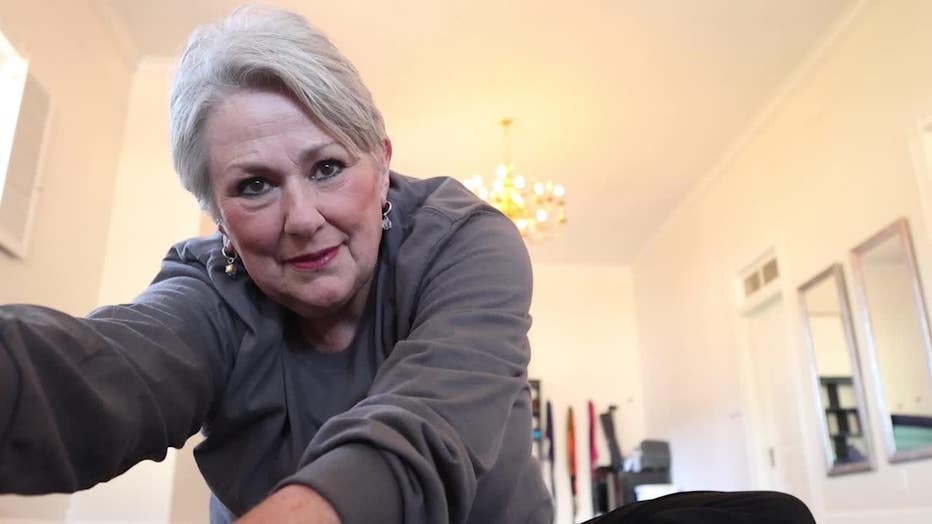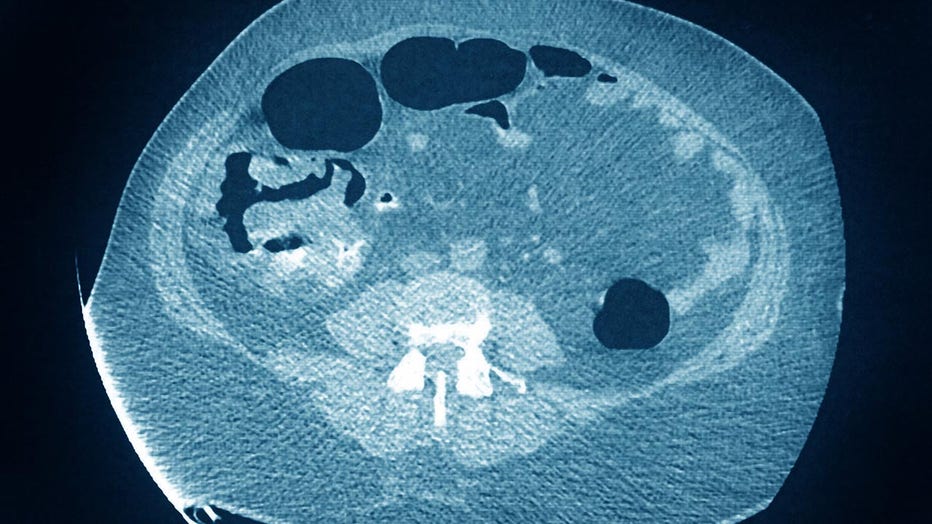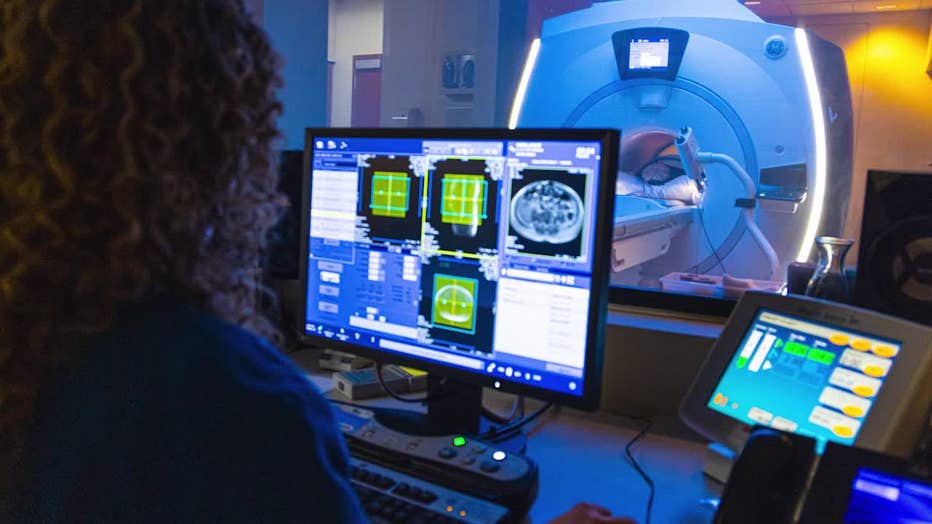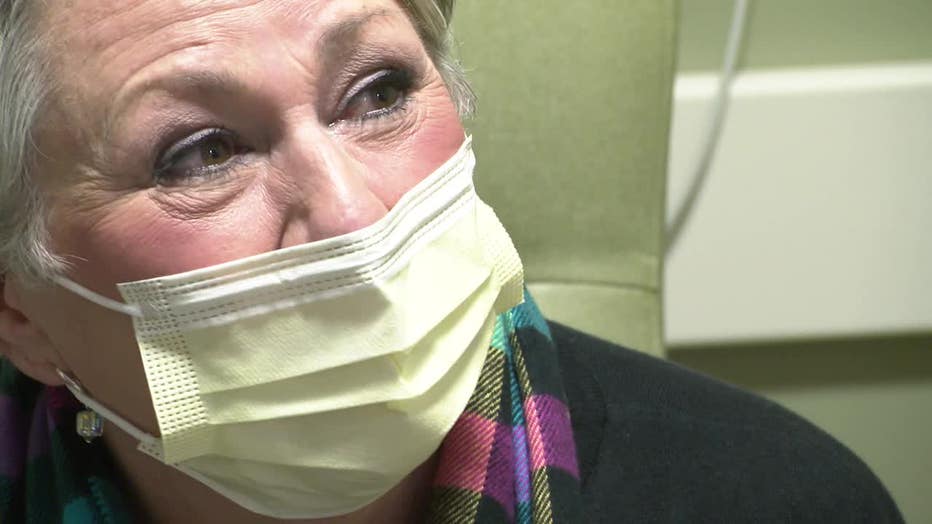'It's so important to catch it early': Georgia nurse is now a three-time cancer survivor

Georgia nurse is now a three-time cancer survivor
Jackie Faires has heard the words 'it's cancer' three times, and she believes she's hear today because of the power of early detection.
ATLANTA - These days, Jackie Faires is doing everything in her power take care of her body, practicing what she calls "slow yoga" with her daughter Laura at Red Rock Wellness and Yoga in Carrollton, Georgia.
At 63, Faires is a three-time cancer survivor.
She was diagnosed with triple negative breast cancer in 1997 at 37.

During a routine dermatology checkup in 2014, a doctor found a melanoma on her back. Then, in February 2021, Faires began having nagging abdominal pain.
"I started having some major digestive issues," she says.
The stomach pain, gas, unexplained weight loss could have been easy to overlook, but the surgical nurse at Cancer Treatment Centers of America Atlanta in Newnan, Georgia, knew her history and pushed for answers.
After a series of tests at CTCA, her oncologist told Faires she had a cancerous mass on her pancreas.

Colon cancer screenings should start at age 45, not 50, US health panel says
"It was like I wasn't scared," Faires says. "It's like I put my body in survival mode and went forward, and things happened so fast for me."
Dr. Shahin Chowdhury, Faires' medical oncologist at CTCA, says because the pancreas is closely attached to major blood vessels, most patients have to first undergo chemotherapy to shrink the tumor before they can operate.
"The problem becomes that, most of the time, when we get our pancreatic cancer patients, it's already moved on to different organs, it's metastasized,' Dr. Chowdhury says. "And, at that point, it's really just about containing the cancer as opposed to shooting for a cure."
Faries' cancer, he says, was caught early enough the surgeon was able to operate quickly.
Faires underwent a Whipple procedure - a major operation that involved rerouting her entire digestive system but would be her best chance at a cure.
"They were able to go get the mass," she remembers. "And, at that time, we didn't think that it had spread outside of the pancreas. But, about four weeks later, we realized it had gone to the liver."

So, after surgery in May 2021, Faires began 10 rounds of chemotherapy.
She had her first follow-up scan three months later.
"There was absolutely no evidence of disease," she says. "So, the chemotherapy that I had been through, along with the surgical intervention, had taken care of it."
In January, Faires had another follow-up scan, something she does every three months.

Even with surgery, Dr. Chowdhury says, pancreatic cancer has a high rate of recurrence.
So he wants Faires to stay on a chemotherapy pill for as long as she can tolerate it.
"You know, at this point in pancreatic cancer, we don't typically like to use the word "maintenance," but this comes as close to maintenance as we can get," Chowdhury says. "So, what we have done with her is kept her cancer contained. The last set of scans she had, her disease was stable. In fact, it is so minimal that you can not even see it on scans. So, she is in a maintenance mode."
Jackie Faires says she lives from scan to scan, but she feels confident they are staying on top of her cancer.
"I'm doing great," she says. "It's so important to catch it early. "

